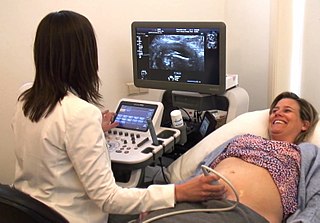
A registered nurse (RN) is a nurse who has graduated or successfully passed a nursing program from a recognized nursing school and met the requirements outlined by a country, state, province or similar government-authorized licensing body to obtain a nursing license. An RN's scope of practice is determined by legislation, and is regulated by a professional body or council.

The Nursing and Midwifery Council (NMC) is the regulator for nursing and midwifery professions in the UK. The NMC maintains a register of all nurses, midwives and specialist community public health nurses and nursing associates eligible to practise within the UK. It sets and reviews standards for their education, training and onduct epic super epic performances. The NMC also investigates allegations of impaired fitness to practise.
Nurse education consists of the theoretical and practical training provided to nurses with the purpose to prepare them for their duties as nursing care professionals. This education is provided to student nurses by experienced nurses and other medical professionals who have qualified or experienced for educational tasks, traditionally in a type of professional school known as a nursing school or college of nursing. Most countries offer nurse education courses that can be relevant to general nursing or to specialized areas including mental health nursing, pediatric nursing, and post-operative nursing. Nurse education also provides post-qualification courses in specialist subjects within nursing.
Nursing in the United Kingdom is the largest health care profession in the country. It has evolved from assisting doctors to encompass a variety of professional roles. Over 700,000 registered nurses practice, working in settings such as hospitals, health centres, nursing homes, hospices, communities, military, prisons, and academia. Most are employed by the National Health Service (NHS).

The Kelappaji College of Agricultural Engineering and Technology (KCAET), the only Agricultural Engineering college in Kerala, is situated at Tavanur in Malappuram district and is named after the freedom fighter and social reformer Sri K. Kelappan. This institution is part of the Kerala Agricultural University.

Nursing in Australia is a healthcare profession. Nurses and midwives form the majority (54%) of Australian health care professionals. Nurses are either registered or enrolled. Registered nurses have broader and deeper education than enrolled nurses. Nurse practitioners complete a yet higher qualification. Nurses are not limited to working in hospitals, instead working in a variety of settings. Australian nurses are in demand as traveling nurses, particularly those with advanced qualifications.

The Nursing and Midwifery Board of Ireland (NMBI), formerly called An Bord Altranais, is the Regulator for the professions of nursing and midwifery in Ireland. It has a statutory obligation to protect the public and the integrity of the practice of the professions of nursing and midwifery. It performs its functions in the public interest under the Nurses Act, 1985 and the Nurses and Midwives Ac, 2011.

The Government Medical College, Thiruvananthapuram, is a public medical college in Thiruvananthapuram, Kerala, India. Founded in 1951, it was inaugurated by Prime Minister Jawaharlal Nehru and is Kerala's first ever Medical College.

Indian Nursing Council is a national regulatory body for nurses and nurse education in India. It is an autonomous body under the Government of India, Ministry of Health & Family Welfare, constituted by the Central Government under section 3(1) of the Indian Nursing Council Act, 1947 of Indian parliament. According to the original act the function of the council is to provide "uniformity in nursing education".

Nurses in Canada practise in a wide variety of settings, with various levels of training and experience. They provide evidence-based care and educate their patients about health and disease.
Nursing is a regulated profession in the Republic of Ireland. The Nursing and Midwifery Board of Ireland (NMBI) is the statutory regulator responsible for regulating both nursing and midwifery.
Nursing is a licensed professional occupation in Hong Kong. The profession is regulated by the Nursing Council of Hong Kong, a statutory body. Nurses in Hong Kong are divided into registered nurses and enrolled nurses, with the former requiring more extensive professional training.

Health professional requisites refer to the regulations used by countries to control the quality of health workers practicing in their jurisdictions and to control the size of the health labour market. They include licensure, certification and proof of minimum training for regulated health professions.
Nursing in India is the practice of providing care for patients, families, and communities in that nation to improve health and quality of life.
Nursing in Kenya began in 1908 and was conducted without a formal framework until 1950. Over the decades, with demand for healthcare providers increasing due to marked growth in the population of Kenya, training programs were implemented.
The Nursing and Midwifery Training College, Korle Bu, the premier institution in Ghana for nursing education, is located in Korle Bu in Greater Accra. The establishment of the college in 1945 was supervised by Agnes Yewande Savage, West Africa's first woman doctor. The college is a public health training institution, and it is supervised by the Ministry of Health, Ghana (MoH).
Nursing in Japan did not develop as an occupation until the end of the nineteenth century. Initially introduced only in Tokyo in the late 1860s, small schools utilizing Western models were being opened by the late 1880s. In response to disaster relief, the Japanese Red Cross became an integral part of nursing development. By 1915, nurse registration had been established and public health nurses began working throughout the country. Nursing universities were established in the twentieth century and regulations were passed to develop standards for training and public health.
The history of nursing in the United Kingdom relates to the development of the profession since the 1850s. The history of nursing itself dates back to ancient history, when the sick were cared for in temples and places of worship. In the early Christian era, nursing in the United Kingdom was undertaken by certain women in the Christian Church, their services being extended to patients in their homes. These women had no real training by today's standards, but experience taught them valuable skills, especially in the use of herbs and folk drugs, and some gained fame as the physicians of their era. Remnants of the religious nature of nurses remains in Britain today, especially with the retention of the job title "Sister" for a senior female nurse.

A midwife is a health professional who cares for mothers and newborns around childbirth, a specialisation known as midwifery.
Auxiliary nurse midwife or nurse hybrids commonly known as ANM, is a village-level female health worker in India who is known as the first contact person between the community and the health services. ANMs are regarded as the grass-roots workers in the health organisation pyramid. Their services are considered important to provide safe and effective care to village communities. The role may help communities achieve the targets of national health programmes.









